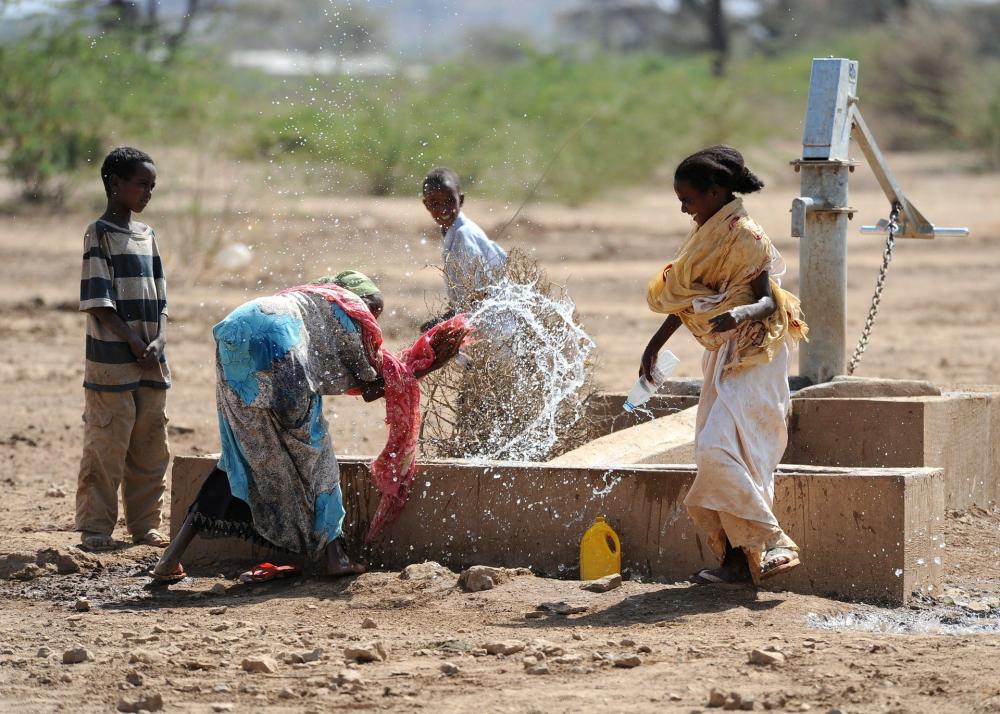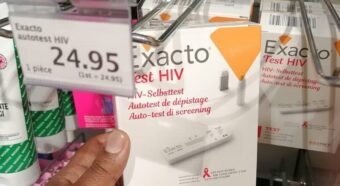Making West and Central African Voices count in the post-2022 Global Fund Strategy
- May 10, 2021
- Funding
- By Armelle Nyobe
- Read in French

The main aim of the round table discussion was to initiate a WCA discussion platform to foster continued engagement on issues impacting WCA Global Fund grant implementation. In addition, the discussion aimed at a contextual dialogue on ways to improve WCA grant performance and take these, forward with Global Fund as the Bureau and Constituencies amplify African voice on the Global Fund’s post-2022 strategy to a wider global audience. In order to achieve this, the round table discussion was hosted by the Bureau Technical Staff Members and was attended by various experts, including representatives of Country Coordinating Mechanisms (CCMs), Global Fund Representatives, WHO Representatives for WCA, and other key partners operating in WCA.
Why has WCA remained a key focus on Global Fund grant process discussions?
Generally, sub-Saharan Africa is the epicenter of the malaria, TB and HIV epidemics. While much progress has been made since 2010 against the three epidemics, especially in regards to the epidemic control of HIV, much remains to be done if the global community is to end these epidemics in 2030. It should strongly be argued that, if the fight against HIV, TB and malaria is to be won by 2030, it certainly has to be won on the African continent. And nowhere is this particularly important than in WCA region, a region that has generally disproportionately underperformed achieving globally agreed health goals. According to Global Fund Key Performance Indicators, program data, among other sources including technical partners’ progress updates, OIG advisory findings on grant implementation in WCA region; this data generally shows that the region has consistently underperformed in achieving goals and objectives towards ending the three epidemics. Overall, these reports also indicate that, while there is some progress in WCA, there are still significant challenges remaining. The region is generally fragile. As there is insufficient political will, low public health expenditures, poor health systems (especially in the field of supply to the last mile, inadequate human resources, and fragmented and unreliable health information systems), weak support for community organizations, structural barriers to accessing available services including HIV-related criminalization and high user fees resulting in high out of pocket expenditures. Most importantly also, the OIG review has shown that there is generally sub-optimal grant implementation processes and lack of integration of health service delivery in WCA.
In light of the above, African constituencies have identified initial set of priority areas specific to WCA to be considered in the next Global Fund strategy. In order to refine, amplify WCA’s key asks and garner consensus among Global Fund stakeholders, this round table discussion deliberated on key issues relevant to WCA that should be prioritized in the next Global Fund strategy in order to achieve optimal portfolio performance. In these discussions the participants reiterated that the Global Fund should continue applying a differentiated approach and inclusivity in its policies and operations and, in particular, apply stronger attention to the WCA region. The discussions emphasized the key asks and WCA priority areas of focus that have been submitted in a position paper to Global Fund. In this position paper African constituencies recommend the Global Fund to:
Ensure the Global Fund’s “Accelerons le mouvement in WCA project’s” findings and recommendations are effectively addressed and implemented over the current cycle and into the next strategy.
- Apply flexibility in implementing the Global Fund’s procedures and processes, including relying on those already listed in the COE policy as recommended by the OIG review earlier.
- Operationalize the Global Fund principles of ‘country ownership’ and ‘partnership’ to “ensure the right balance between financial safeguards and program implementation.” This right balance requires the participation of communities, development actors and other local organizations working in-country that can deliver good performance even though they may not be sophisticated. Such a change requires an increased risk appetite as acknowledged by the Secretariat risk management report to the 44th Board meeting.
- Support health task-shifting strategies (including with community health workers) to enable health systems to meet better the needs of populations living with HIV/AIDS, malaria, TB, and emerging epidemic threats amid physicians, nurses and other human resources for health shortages.
- Encourage innovation and multi-sectoral approach for all three diseases, focusing on malaria due to high incidence and slow progress in reducing malaria morbidity.
- Support the involvement in the emergency and humanitarian response in discussions with CCMs in COE countries while updating existing procedures and policies in consultation with countries and partners involved in managing programs in emergency conditions such as the International Organization of Migration (IOM), UNHCR, Red Cross, Oxfam, etc. and not only Global Fund’s traditional partners.
- Encourage African organizations and leaders in COE states to foster collaboration between community-based organizations providing health services, medical schools, civil society and public health departments. These collaborations could facilitate exchanges of technical expertise, ideas, research, and personnel.
- Strengthen country and cross-border implementation mechanisms to provide adequate HIV, TB and malaria response in situations of crisis, emergencies, and challenging operating environments.
- Encourage the routine production and use of national health accounts to demonstrate co-financing investments, especially in low-income countries.
- Encourage countries in WCA to use their co-financing to strengthen their health systems for sustainability instead of purchasing health commodities.
- Consistently apply objective criteria for countries to exit the additional safeguards policy. These criteria would have milestones and deliverables that the Secretariat and the country can jointly monitor
In a follow up to these above mentioned key priority asks, the round table discussion focused on applying ‘innovative approaches’ on these issues that affect WCA. In order to apply these innovative approaches one of the key questions that was addressed was on how the HIV, TB malaria response can effectively be carried out differently in WCA region. In summary, participants recommended that coordination of technical assistance (TA) should come first from the concerned country – like at CCM level, with the strong suggestion to have a TA focal point in each CCM. Coordination should be also done by taking into consideration local opportunities and available supports so much so that coordination at country level should prevent duplication and enhance expression of needs. Within this coordination, TA providers should be able to understand very well not only the type of support needed, but also the length and the level of support (what kind a catalytic effect is expected – a change in practices, a change of policies, strengthen the local or national capacities, etc.) The discussions observed that the more TA requests are detailed, the better it is. Therefore, the Country teams, at the GF secretariat, should also be coordinating TA requests. In order to improve things in WCA we need to improve on ‘ownership and leadership’ at national and local level. This should be coupled by meaningful participation of local stakeholders on high priorities such as governance, health financing, barriers to health services and implementation modalities. National leadership should be strong and partnerships should also be strengthened by ‘south to south’ learning. In terms of Global Health Security on pandemic preparedness; WCA needs to be prepared before major outbreaks, this means having a capacity to detect, monitor and have accurate science based program of response that can be compared with other regional trends and improve cross boarder collaboration. In the area of improving partnerships, there is a need to build the capacity of CSOs in WCA to work better with GF and national government on the fight against HIV, TB and Malaria. As WCA figures are generally still very high, there is a need to act with speed – innovative approaches in strengthening health systems by influencing the GF grants to be more flexible so that they can effectively fit local context, policies and mechanisms for better-coordinated implementation impact. In order to bring lasting change in WCA, there was consensus on the necessity to deliberately enhance participation of local stakeholders, to deal with financial and social barriers for vulnerable groups, and bring in a strong consultation with communities at large on access and availability of treatment modalities in the region. In conclusion, it was generally observed that most of the WCA countries have no clear health policy that could be used by external partners as a strong foundation to build on response mechanisms. Therefore, there was a general agreement in the discussions that there is a need to enhance robust health policy formulation processes in WCA.


